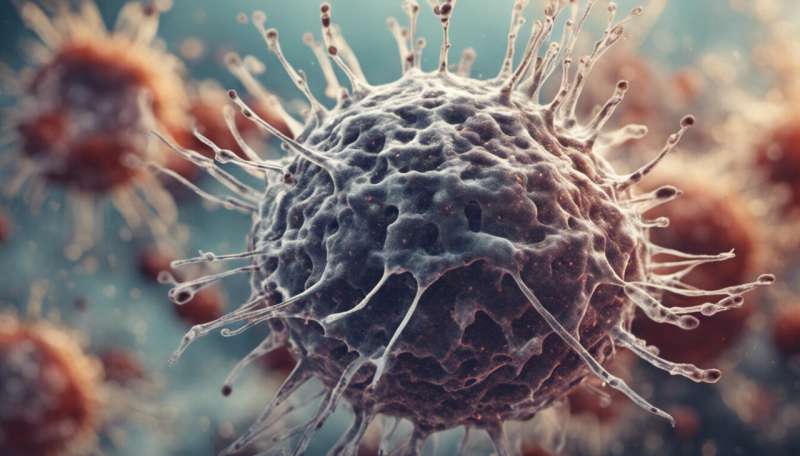This article has been reviewed according to Science X's editorial process and policies. Editors have highlighted the following attributes while ensuring the content's credibility:
fact-checked
trusted source
proofread
Urgent environmental action needed to limit the spread of superbugs, says new report

To reduce superbugs, world must cut down pollution and change how we behave, according to a new report by the UN.
Curbing pollution of the environment with human, animal, pharmaceutical, agricultural and healthcare wastes is essential to reduce the emergence, transmission, and spread of superbugs.
Co-authored by Newcastle University's Professor David W Graham, the flagship report "Bracing for Superbugs: strengthening environmental action in the One Health response to antimicrobial resistance" was launched at the Sixth Meeting of the Global Leaders Group on Antimicrobial Resistance AMR, held in Barbados on Feb 7 and 8.
The report shows that antimicrobial resistance (AMR), which can create superbugs, is closely linked to the triple planetary crisis of climate change, biodiversity and nature loss, and pollution and waste, driven by human activity, unsustainable consumption and production patterns. It also states we must change our behavior and increasement investment in cross-sectoral solutions.
The impact of AMR
Listed by the WHO among the top 10 global threats to health, it is estimated that in 2019, 1.27 million deaths were directly attributed to drug-resistant infections globally, and 4.95 million deaths worldwide were associated with bacterial AMR (including those directly attributable to AMR).
The development and spread of AMR mean that antimicrobials used to prevent and treat infections in humans, animals and plants might turn ineffective, with modern medicine no longer able to treat even mild infections.
The report found that:
- Up to 10 million deaths could occur annually by 2050 due to AMR, on par with the 2020 rate of global deaths from cancer.
- Pollution in key sectors of the economy contributes to the development, transmission and spread AMR.
- AMR's economic toll could result in a GDP drop of at least USD 3.4 trillion annually by 2030, pushing 24 million more people into extreme poverty.
Professor Graham from Newcastle's School of Engineering, who was recently appointed to the UN Quadripartite Technical Group On Antimicrobial Resistance and Use Integrated Surveillance (QTG-AIS), said, "The new UN report on superbugs, AMR, and the environment is a game-changer because it provides strong evidence that our only way to prevent and reduce increasing AMR is through more holistic solutions, which cross all sectors.
"The ethos is called One Health, which functionally states that human, animal and environmental health are intrinsically linked, and without reducing AMR in all sectors at once, AMR will continue to rise.
"The report's importance is that it shows that the environment is central to AMR transmission and spread, even to and from the human and animal health sectors, and solutions to AMR must focus prevention across sectors, cross-sectoral solutions, and increased integrated surveillance."
Reducing the spread of superbugs
Key recommendations of the report include:
- create robust and coherent national level governance, planning, regulatory and legal frameworks, and establish coordination and collaboration mechanisms
- increase global efforts to improve integrated water management and promote water, sanitation and hygiene to limit the development and spread of AMR
- increase integration of environmental considerations into AMR National Action Plans, and AMR into environmental-related plans
- establish international standards for what constitutes a good microbiological indicator of AMR from environmental samples
- explore options to redirect investments, to establish new and innovative financial incentives and schemes, and to make the investment case to guarantee sustainable funding
- environmental monitoring and surveillance and further research prioritization to provide more data and evidence and better target interventions, which is among the central mandates of QTG-AIS
UN Environment Program (UNEP) Executive Director Inger Andersen said, "AMR is not just a health issue. AMR is not just an environment issue. AMR is an equity issue. One number makes that very clear. By 2030, AMR could cause a fall in GDP of USD 3.4 trillion per year. This could push an extra 24 million people into extreme poverty. If we are serious about increasing equity and saving lives, we must act now on AMR.
"The bottom line is that getting serious about AMR means preventing environmental pollution. Limiting the discharge of antimicrobial-laced waste to the environment is important for everyone—because every sector is guilty of adding to the AMR burden."
Provided by Newcastle University




















